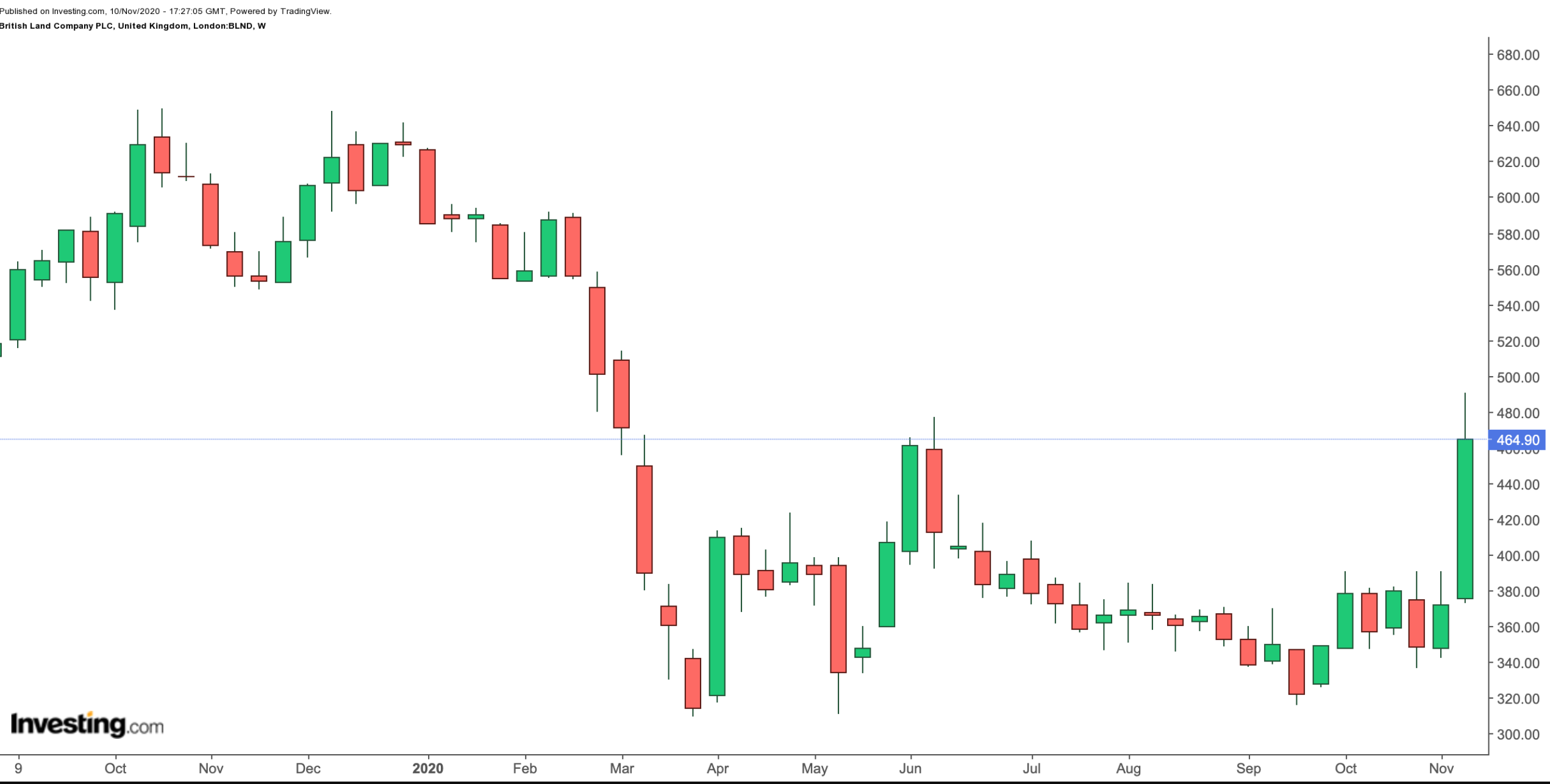For most people, home is where the heart is, making real estate one of the top asset classes for many investors.
Strong property price accelerations over time frequently make headlines on both sides of 'the pond,' whether in the US or UK, as well as in many other countries. Thus, investing in buy-to-let, or rental property has also become quite popular over the past few decades.
However, being a landlord or a landlady may not appeal to some. It can be difficult and time-consuming. Obtaining a mortgage, managing the properties, collecting rent, collaborating with estate agents, finding tenants, and property upkeep can easily turn into a full-time job.
Although investing in traditional brick-and-mortar assets may sound complicated, many financial planners see genuine merit in having exposure to property as part of a diversified investment portfolio.
What can those investors who may not have the capital or the time to build or maintain a real estate portfolio do? They could easily buy publicly-listed Real Estate Investment Trusts (REITs).
Previously we discussed REIT investing in the US and looked at several exchange-traded funds (ETFs), including the Vanguard Real Estate Index Fund ETF Shares (NYSE:VNQ), the Real Estate Select Sector SPDR Fund (NYSE:XLRE) and the iShares Residential and Multisector Real Estate ETF (NYSE:REZ).
REITs may offer exposure to residential, retail, office or industrial properties as well as more specialized property such as cell towers or data centers. Today we'll focus on British Land (LON:BLND), (OTC:BTLCY), a REIT that is part of the UK's FTSE 100 index.
UK-Based REITs Operate In A Significant Sector
The REIT regime was introduced in the UK in 2007, whereby real estate investment trusts own and manage properties on behalf of shareholders. By law, UK-based REITs must pay out 90% of their taxable profits to shareholders.
The London Stock Exchange highlights the segment by saying, "there are over 50 REITs with a market capitalisation of over $70bn listed" on the exchange.
The UK property market is one of the most significant sectors of the economy. Over 1.2 million people work in the industry, which contributes about 7% to the country's economy annually – about £100 billion (or $132.5 billion).
According to the leading property portal Rightmove (OTC:RTMVY), the UK saw a:
“[N]ew national record for average price of property coming to market, with a 1.1% (+£3,534) monthly rise. Prices now 5.5% (+£16,818) higher than a year ago, the biggest rate of increase for over four years, with Rightmove now forecasting annual growth rate to peak at circa 7% by December."
British Land
The group has close to £15 billion (about $20 billion) assets under management. The occupancy rate and annualized rent stand at 96.6% and £516 million ($683 million), respectively.

Its commercial space in London, mainly around Broadgate, Regent's Place and Paddington Central, comprises over 60% of the total portfolio. Retail makes up close to 35% of the portfolio, but management is planning "to reduce this business to 25-30% of the total over the medium term."
It is currently developing a new urban center over 53 acres in Canada Water, across from Canary Wharf, one of the most important financial districts in Europe and worldwide.
During 2020 the group endured a serious dent in its growth and operations. In late May, British Land announced full-year results for the year ended 31 March. It reported losses on lower rental income. Pre-tax loss was £1.1billion ($1.32) and net rental income fell 10.1%.
Even before the coronavirus pandemic reached the UK in late February, like many other REITs, British Land had been troubled by fears over Brexit, the UK's departure from the European Union. Due to its exposure to commercial property, the long-predicted death of bricks-and-mortar retail outlets hadn't helped the shares, either.
Since the start of the year, BLND shares are down over 27%. On Nov. 10, it closed at 464.90p ($6.19 for US-based shares). In early October, it reinstated the 5.1% yielding dividend that had been suspended earlier in the year. The group's price-to-book (P/B) ratio of 0.61 could appeal to value investors, with a number under 1.0 indicating a potentially undervalued stock.
On Nov. 18, the group will release half-year results. Potential investors may want to analyze the metrics before committing capital into the REIT. On a final note, British Land aims to deliver "a net zero carbon portfolio by 2030."
Bottom Line
Property is a tangible asset that most of us are familiar with. Many investors in the US, the UK and other countries invest in property by including REITs in their portfolios. They are liquid assets, easily traded on stock exchanges. They typically offer higher returns than bank savings accounts, and also have the potential to deliver capital growth.
Those investors who would like exposure to US-based REITs may also research Atlanta, Georgia-headquartered Americold Realty Trust (NYSE:COLD), which specializes in temperature-controlled warehouses, Chicago, Illinois-based Brookfield Property REIT (NASDAQ:BPYU), which focuses on commercial properties, Houston, Texas-headquartered cell tower REIT Crown Castle International (NYSE:CCI), San Francisco, California-based data center REIT Digital Realty Trust (NYSE:DLR) or Scottsdale, Arizona-headquartered Healthcare Trust Of America (NYSE:HTA), which owns medical office buildings (MOBs) stateside.
